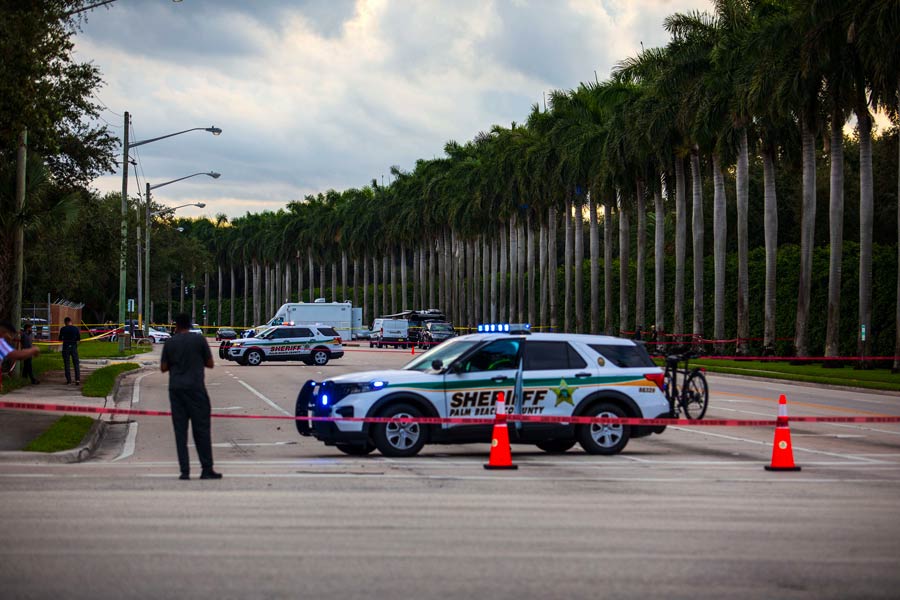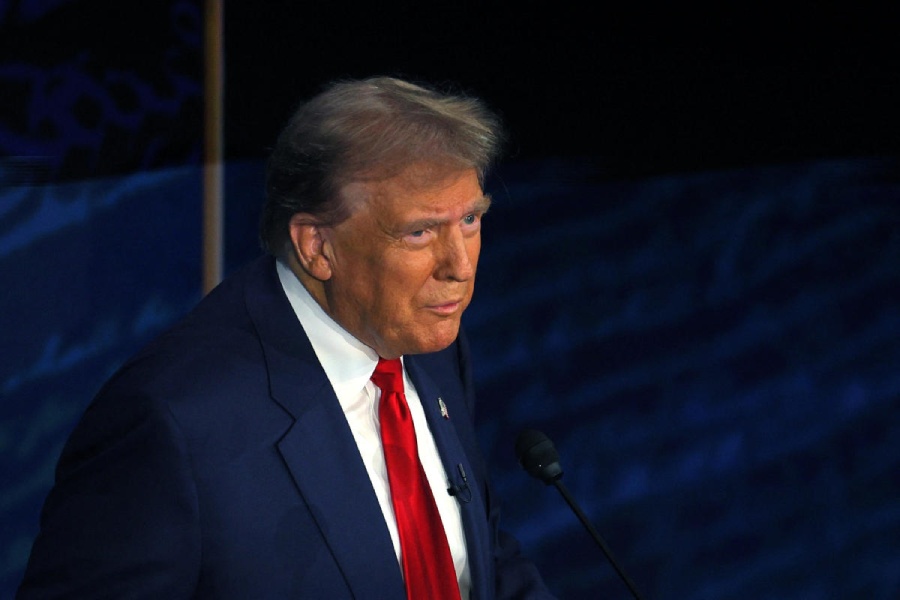A would-be killer got within shooting distance of former President Donald Trump for the second time in about two months — stopped only by the swift, keen-eyed response of Secret Service agents — raising new questions about the agency’s broader ability to protect candidates in its charge.
The Secret Service significantly bolstered Trump’s protective detail after coming under intense criticism following an attempt on his life in Butler, Pennsylvania, on July 13. That beefed-up detail, which includes additional agents and enhanced on-the-ground intelligence, might have played a role in the outcome this weekend, current and former officials said.
Yet the fact that a gunman was able to get a semi-automatic rifle with a telescopic sight so close to the former president, roughly 300 to 500 yards away, underscored how many urgent problems exposed in Butler remained unresolved — and how difficult it is for the Secret Service to respond to an unpredictable and increasingly violent political environment.
As in Butler, the biggest issues in Trump’s protection seem to involve securing the protective perimeter of a targeted site, even one they know as well as Trump’s properties. The would-be shooter positioned himself in the bushes on the perimeter of the former president’s golf club in West Palm Beach, Florida. A Secret Service agent was one hole ahead of Trump on the course and spotted the barrel of a gun, prompting agents to open fire on the man, Sheriff Ric Bradshaw of Palm Beach County said at a news conference Sunday.
Bradshaw said that Trump — one of the most polarizing figures in the world — still retains a protective detail that is smaller than the one given to a sitting president. That, he said, limits the protections the Secret Service and its local partners can provide.
“At this level that he is at right now, he’s not the sitting president — if he was, we would have had this entire golf course surrounded,” Bradshaw said.
“But because he’s not, the security is limited to the areas that the Secret Service deems possible,” Bradshaw added, while praising the service’s fast response. “So I would imagine that the next time he comes at a golf course, there’ll probably be a little bit more people around the perimeter.”
Michael Matranga, a former Secret Service agent who protected President Barack Obama, said the agency should “seriously consider giving former President Trump the same or equal package as the president of the United States” and called the incidents “unprecedented.”
Lawmakers on both sides of the aisle lauded the actions of the agents, but they vowed to subject the agency’s already embattled leadership to intense questioning about the suspect’s ability to position himself near the former president.
“The facts about a second incident certainly warrant very close attention and scrutiny,” said Sen. Richard Blumenthal, D-Conn., and chair of the Senate subcommittee investigating the security failures at Butler.
“Certainly a second serious incident, apparently involving an assault weapon, is deeply alarming and appalling,” he added.
Sen. Lindsey Graham, R-S.C., who is a close ally of Trump, said the Senate’s investigations into the security lapses in Butler cited mismanagement within the Department of Homeland Security, which oversees the Secret Service, as well as budget and morale issues.
“They’ve lost their focus,” he said. “They need more resources. These agents just work; they have no lives.”
The New York Times News Service











